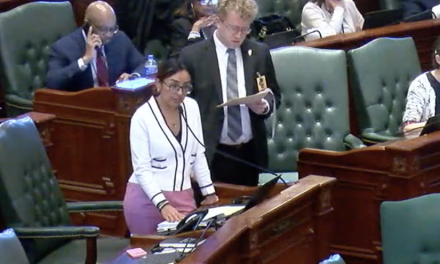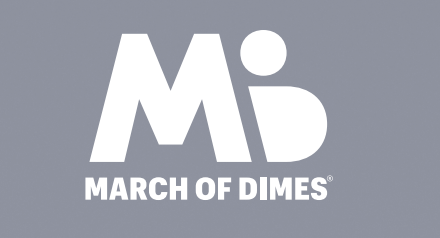
State plots its own path with changes to essential health benefits

In August, the Centers for Medicare and Medicaid Services signed off on Illinois’ proposed changes to the essential health benefits in its Affordable Care Act benchmark plan.
Illinois is the first, and so far only, state to receive such authority. CMS, which is allowing more flexibility, is offering private plans in the individual and small group markets starting in 2020.
CMS approved five changes for Illinois that are focused on increasing access to mental health treatment and combatting the opioid epidemic.
In a recent interview with Health News Illinois, Department of Insurance Director Jennifer Hammer explained why the state sought the changes and why she thinks other states have taken a pass. She also talked about additional funding the state received to make more changes to the benefits.
Edited excerpts are below.
HNI: Why is this something the state pursued?
JH: From DOI’s perspective, the magnitude of the opioid crisis is just something that’s hard to grasp. And so we have been really looking at all of the tools available to us to be able to address that, along with mental health. Both of those issues are really near and dear to me. As tools become available, we kind of do sprints here at the department to try to use those as quickly as possible. So in April, the Washington administration announced this flexibility where essentially you could write your own benefit plan with a a very short time period. The deadline was the first week of July to file that. And so we thought about really what could we accomplish?
From my perspective, I always try to take our mission and vision of consumer education and protection and make sure we’re looking through that lens. And then we’ve really been focused on mental health and opioids. So as we become the first and only state. We heard rumblings that no other state was going to apply. The timeline was too short. You needed an actuarial analysis. And I said, “‘Well, then focus very specifically. Target our focus on mental health and opioids.” And that’s what we did. And so I said everything that we are going to work on is going to be evidenced-based. So you’re going to have peer-reviewed academic studies to support a return on investment for whatever the investment or change in the benchmark plan will be. And that’s what we did. And we made a list and then we quickly got an actuarial opinion turned around to see really what the impact would be. And we took the top five things that would move the needle the most on the opioid crisis and mental health.
HNI: Why do you think Illinois was the only state that applied to make these changes to the benchmark plan?
JH: It’s a combination of factors. I think absolutely it was the tight time period. But also contributing to that was the fact that it was really one line in the announcement that just said you draft your own benefits. There was no guidance. My motto since I got here is that you push the envelope as long as you are well intentioned and keeping the consumer in front of whatever you’re doing and making sure you’re looking out for their best interests. We asked to do this and they said yes. But there were no guidelines. So they had announced several things that maybe you couldn’t do, but the breadth of what you could do was so large that we were just lucky that we had been focusing for a long time on mental health and opioids so we could have a targeted approach and then push the federal government on approving it. Obviously, it was a back and forth, but we finally got approval. I think it was the ambiguity of the guidance that was issued from the Washington administration.
HNI: What will these changes do in Illinois?
JH: The first one is alternative therapies. The academic studies show that alternative therapies work as well or better for acute pain in many instances, sometimes in chronic pain. But most importantly, it doesn’t provide the opportunity for addiction with that systemic opioid prescription.
The second thing we did was limit opioid prescriptions for acute pain to seven days. We included a follow-up visit or additional follow-up visits with the prescriber to make sure that they’re getting that face-to-face interaction if necessary for additional days of prescription. But really what was happening is we’re seeing consumers go home with a 30-day prescription when they needed four days. And then they have a bottle sitting there, whether it’s a family member or a friend or, or even themselves, misusing the remainder of that prescription. And so we limited it to seven days.
We removed barriers like prior authorization or step therapy or some of those things to buprenorphine, which is essentially the medically assisted treatment, which is really effective for opioids. They’re at a pivotal point in their life. They are at rock bottom. And then there were all these red tape or barriers to being able to get the actual treatment that they need. We want to be able to deploy the treatment at the right place at the right time, which we think is medically assisted treatment when a prescriber says so. So putting the decision for treatment back in the provider’s hands, the prescriber’s hands, because they’re the ones treating the patient. They know better than a payer.
And when you get more than 50 MMEs of opioid prescription, which normally that’s a severe, chronic pain type of situation, we want that person to have a reversal agent. So covering the least expensive version, which is the nasal spray overdose reversal agent for anyone getting over 50 MMEs. Obviously, the prescriber, again, it’s in their discretion because they are the provider. They know the patient better than a payer would ever know that patient.
And then finally, something I’m super happy about is telepsychiatry for both licensed therapists and prescribers for mental health and substance abuse. And so that provides people that maybe have barriers that are beyond a payer’s ability to address, transportation barriers, timing, other mobility issues, with help that they need in their own home. And it’ll be covered. Obviously, you know, the outcomes are much better, drastically improved, when people are complying with their prescribed regimen.
HNI: The state also received additional money to look at other ways to change the benchmark plan. Where is that process?
JH: When the funding was announced from the Washington administration, it was anticipated by them and us that it would be utilized for the initial benchmark revisions, which will go into effect in 2020. As you know, there obviously were some delays out of Washington with the issuing of those grant dollars. And so we are right now working on what I’ve informally called the benchmark 2.0. We haven’t determined whether it’s opioids or mental health. We have a little more time than we had previously. So from April to July was a very short spread as I mentioned.
I will tell you that we are very focused on issues where Illinois is not providing healthcare to the level that they should. They’re not meeting the national average or better than national average. We are very focused on that and whether there are solutions that we can put in place from the payer perspective that would address that for healthcare consumers.
Health News Illinois is a nonpartisan, independent news service covering the Illinois healthcare beat. Sign up for a free trial to the newsletter here.









